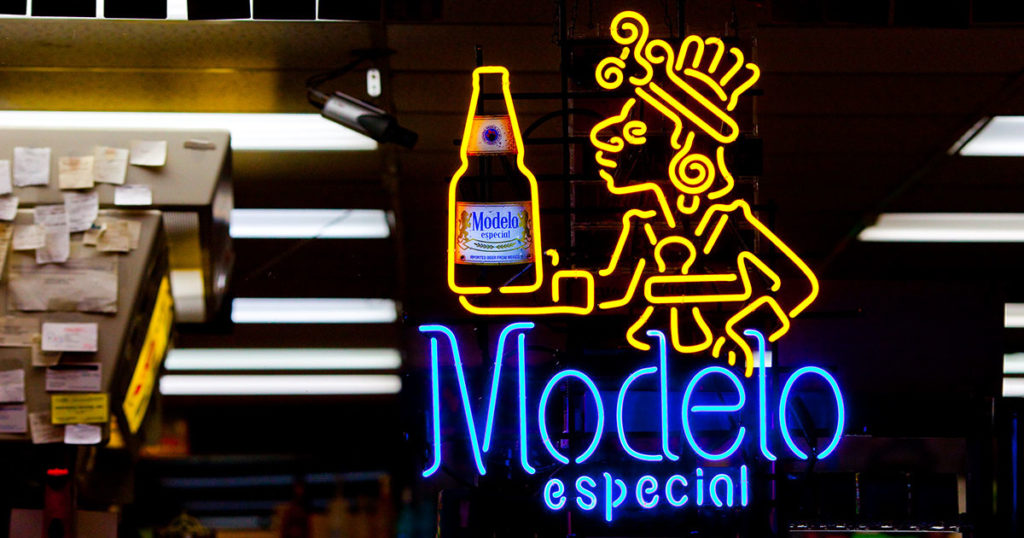
The cut metal sign in the photo seemed out of place in Minnesota, starting with the name of the business, the Split Rail Stables, which brought to mind western vistas, all rough-hewn and rustic. The scene accompanying the words was even more surprising: a couple of riders and three pack horses following a ridge. Cowboys? Prospectors? They looked like they were off to pan for gold, and had no business in a state I think of as the land of lakes, butter churns, and cows in green pastures. Prospectors in Minnesota would be like windmills in Asturias. Everyone knows windmills belong in La Mancha. As windsurfing does in Tarifa, bodegas in León, and wine in La Rioja.
It was my friend, the Walker, who took the picture. She is making her slow way across America on foot, west to east in periodic week-long stints of 13- or 14-mile days, starting each morning from her temporary base camp in whatever convenient town lies en route. Why is she doing this? For the inner peace she gets. Her dispatches from the field, including snapshots, weather reports, bug counts, and heartening statistics about progress, give the readers of her blog an experience that’s as close as possible to being there while remaining safely at home in another part of the country. Or world. The tremendous sky, the pinkie toe that was acting up, and a family of raccoons—all from the Walker’s first day in Minnesota, as was the sign for the stables.
Examining the photo, a reader with a sharper eye than mine saw a bagged elk on a pack horse. So it was neither farmers nor miners but a pair of hunters.
Another photo from this section of the Walker’s walk showed the Tornado Monument in the town of Tracy. Tornados in Minnesota? I’d thought of twisters as threats to states lying farther south, such as Oklahoma and Kansas. But on a June day in 1968, a tornado nearly obliterated the town in 25 minutes. Nine people died, 115 were injured, 111 homes were demolished, five businesses were destroyed, the school was gutted, and a 25-ton boxcar was lifted and hurled several blocks to be dropped at an intersection. That could be a sobering bit of information on a windy June morning in Minnesota. But the biggest threat to the Walker over the days in the state came from the biting insects. The surest respite came from a good breeze.
Another day, the Walker included a picture of a cozy that she’d found. On it was the name TMB Panthers, and she challenged readers to guess what the initials stood for. The only guess that came in was wrong, and the Walker revealed that they stood for Tracy, Milroy, and Balaton—three small towns that pool athletes to make a school sports team. The initials highlighted resourceful collaboration that turned rival towns into allies. Still, I liked the reader’s guess: the Panthers is the softball team fielded in the local league by the Tornado Monument Bar. As the reader explained, after visiting such a monument, he’d definitely need a drink.
In the course of covering her 14 miles, a moment arrives when all the Walker feels is foot pain, exhaustion, and an intense desire to end the day’s walk. Often an inner voice urges her to just lie down beside the road and nap. But that’s not an option. So on day one of her trans-Minnesota trek, with fatigue threatening to overtake her, she distracted herself by eating a Honeycrisp apple and by imagining a cold bottle of Modelo Especial. Where would you go for that beer? You might squint and see a bar miraculously appearing just ahead, as if carried there on a gust of strong wind and plunked down. No doubt it is the Tornado Monument Bar, an establishment you might imagine was founded to solace survivors of nature’s ravages or steady the nerves of others just thinking about the destruction. But the bar could just as easily lessen the pain of 14 miles, both glorious and arduous. Buildings dropping whole from the skies? Why not? The winds are good for more than keeping bugs away. Winds caused wondrous events in Kansas, so why not in Minnesota, on a June afternoon? Stranger tales have been told.

